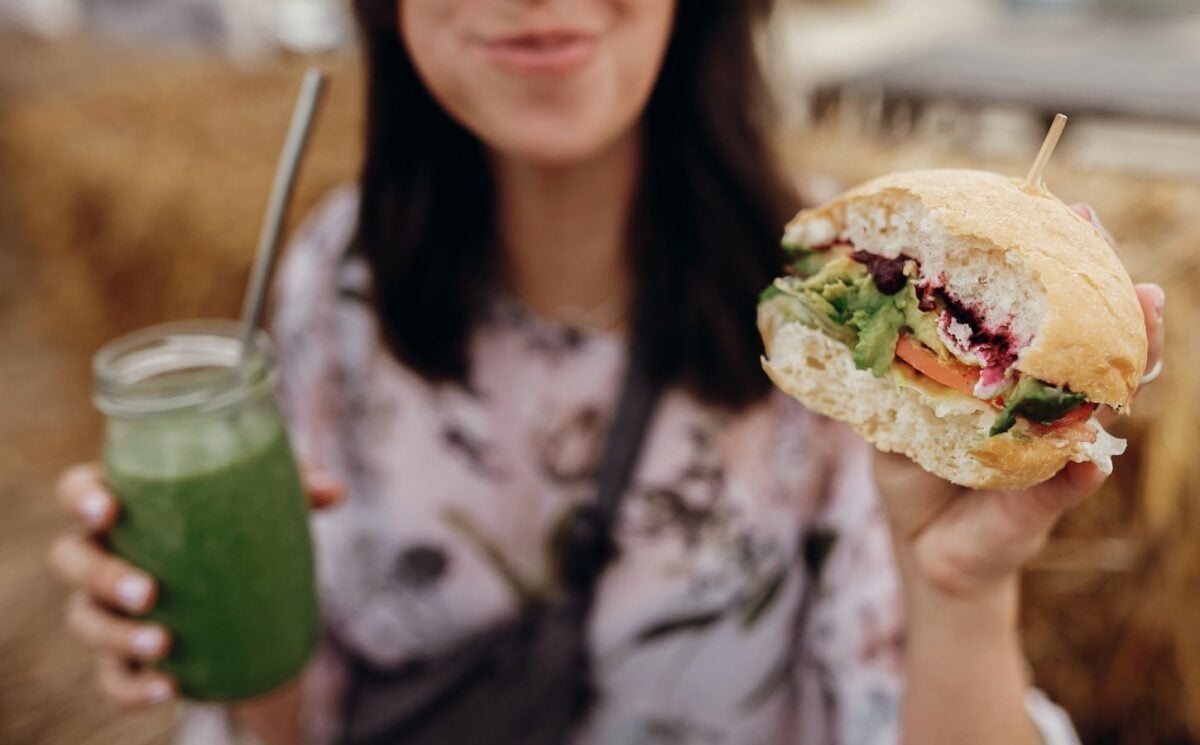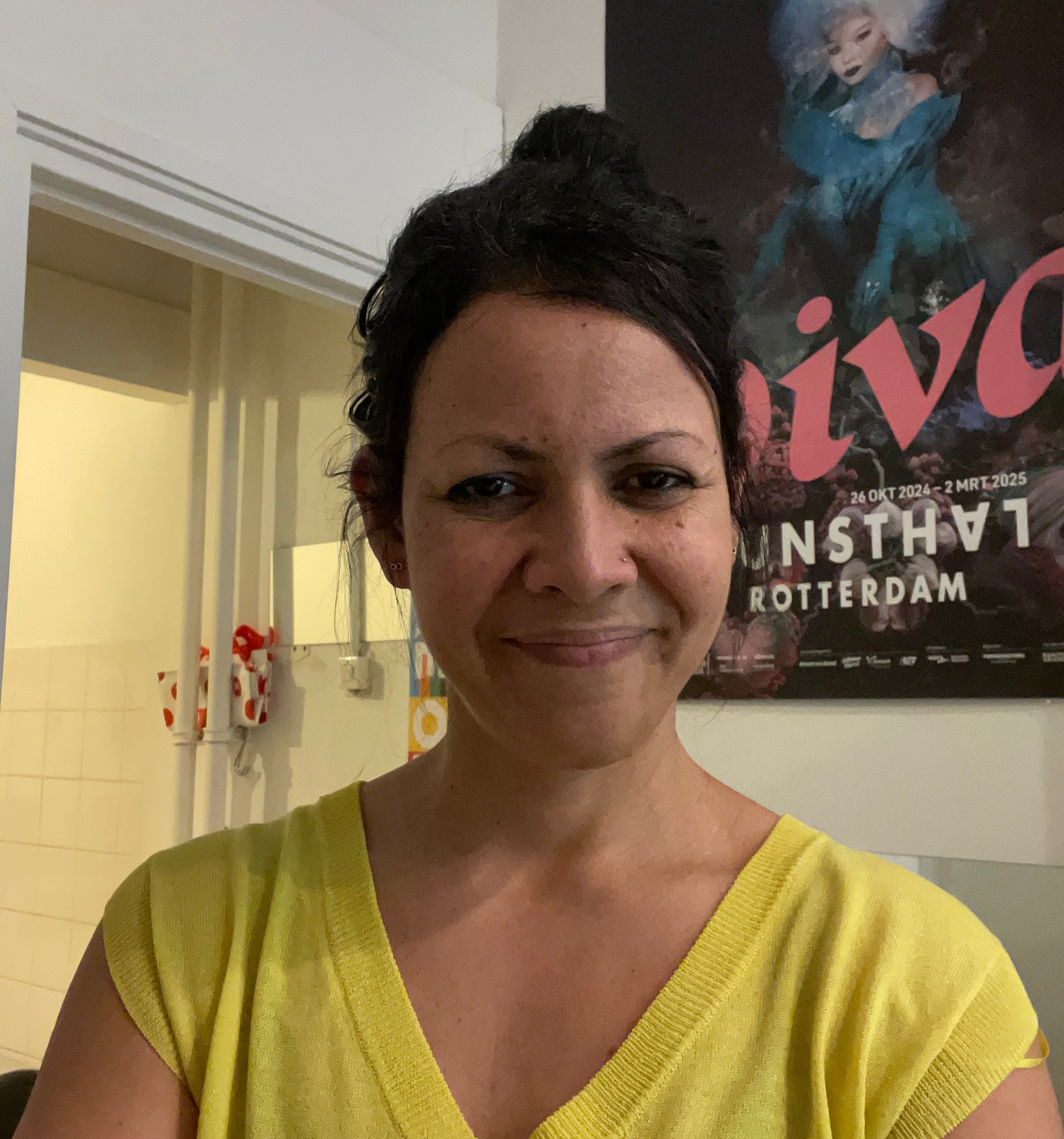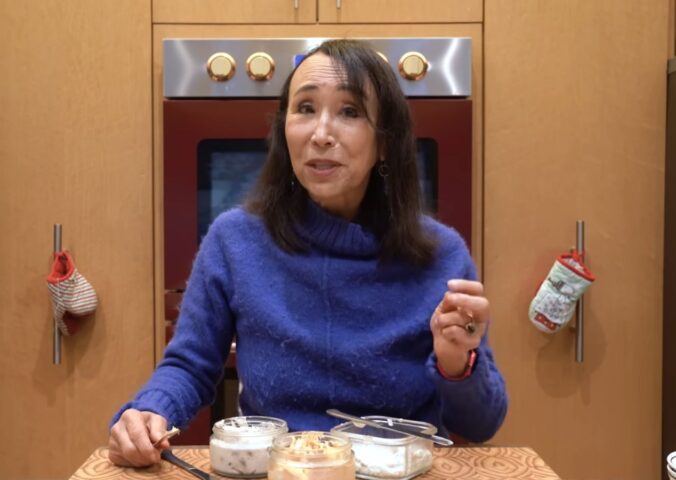Many people turn to a plant-based diet for health or ethics, but few expect the mental and emotional shift that can follow. In a recent episode of The Exam Room podcast, hosted by Chuck Carroll and produced by the Physician’s Committee for Responsible Medicine, psychologist and author Dr Angela Crawford explores the overlooked psychological and spiritual impact of plant-based living.
Dr Crawford, a licensed psychologist and vegan educator with the Physicians Committee’s Food for Life program, recently published the book A Vegan Transformation: A Journey to Heal Yourself and the World. Based on surveys and interviews with more than 350 vegans, the book explores how going vegan can reshape our emotional state, sense of purpose, and alignment with personal values.
Read more: 5 Unexpected Ways A Plant-Based Diet Can Transform Your Life
Why Crawford studies vegan psychology
As a mental health professional with an interest in mind-body wellness, Crawford says she was surprised by the inner shifts she experienced when she went vegan. “I really learned a lot about the nutritional benefits of a plant-based diet and I also learned the ethical reasons,” she says. But she adds that few were talking about the psychological impact.
Crawford surveyed hundreds of vegans and conducted 75 in-depth interviews to understand how the diet affected their emotional and spiritual lives. What she found was consistent: people experienced a deep sense of alignment, empowerment, and often, healing.
How a plant-based diet impacts your emotions
The emotional impact of going vegan is complex, says Crawford. While eating more fruits and vegetables can support mental health through changes to the gut microbiome and neurochemistry, that’s only part of the story.
“There’s also the shift of aligning with our values,” she explains. “It takes a true listening to inner wisdom or guidance to say, ‘Hey, this is what I need to do.’” For many people, this alignment unlocks what Crawford calls authentic fulfilment: the feeling of living a life true to one’s core beliefs.
“[It’s] this sense this sense that I can’t fix everything in the world but I do have control over some things and what actions can I take that are healthy for me and also help things that I care about?” she explains.
But it’s not always easy. “There can be challenging emotions,” she says, especially when confronting the realities of animal agriculture. For activists or those who witness slaughter footage, these experiences can be traumatic. “Learning to navigate those tough feelings…going to a more true, authentic way of living” was key to emotional resilience, she says.
A surprising spiritual connection
One of the most unexpected findings from Crawford’s research was the link between veganism and spirituality. Many respondents reported a deeper connection to nature, a sense of inner peace, and even a greater feeling of closeness to their higher power.
“There was something about eating plant-based, eating lighter, eating more naturally and with less cruelty, that led people to feel more connected,” she says. “That wasn’t something I was necessarily expecting.”
Some had already identified as spiritual and felt veganism was a logical next step. Others said the connection emerged because of the change in diet. “I don’t have to take a life in order to nourish myself,” one participant shared. That realization alone made them feel more spiritually grounded.
Why it takes courage to stay vegan
Crawford is clear that going vegan can make you feel more whole, but staying vegan in a non-vegan world can be hard. Social pressures, family traditions, and misinformation from the meat and dairy industries create obstacles.
That’s why understanding your why is so important, she says. “Connecting with that why on a regular basis can really help.” She also recommends finding a support system, whether online, through community groups, or programs like Food for Life. And finally, developing communication tools helps plant-based eaters navigate social situations with more confidence.
She warns that ignoring one’s values can cause deep internal stress. “When we’re out of alignment with our values…there’s something that can feel deeply wrong inside,” she says. This cognitive dissonance can lead to feelings of discomfort, anxiety, or guilt.
A life-changing moment and the journey that followed
For Crawford, the journey began in 2007 after watching a PBS segment on meatpacking plant workers. “My empathy for the workers got me thinking about the animals,” she says. The next day, she bought her first plant-based cookbook and never looked back.
Today, she credits her vegan lifestyle with helping her live a life more aligned with compassion, health, and truth. “I feel like it’s helped me live a healthier, truer life,” she says.
Her book, The Vegan Transformation, is now available, and includes not only research and exercises for self-reflection, but even a handful of recipes shared by those she interviewed. As Crawford proves, plant-based living is about much more than food. It’s a journey of the mind, body, and soul.
You can find more plant-based health and lifestyle videos on the Physicians Committee YouTube channel.
Read more: 3 Diet Changes That Can Help Ease Menopause Symptoms






